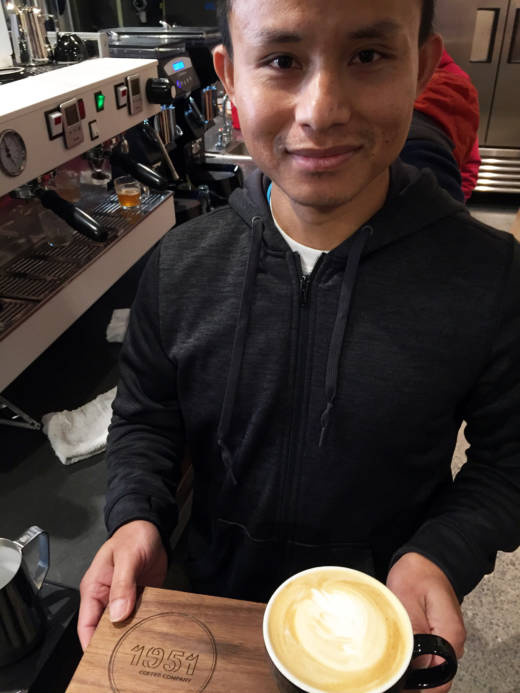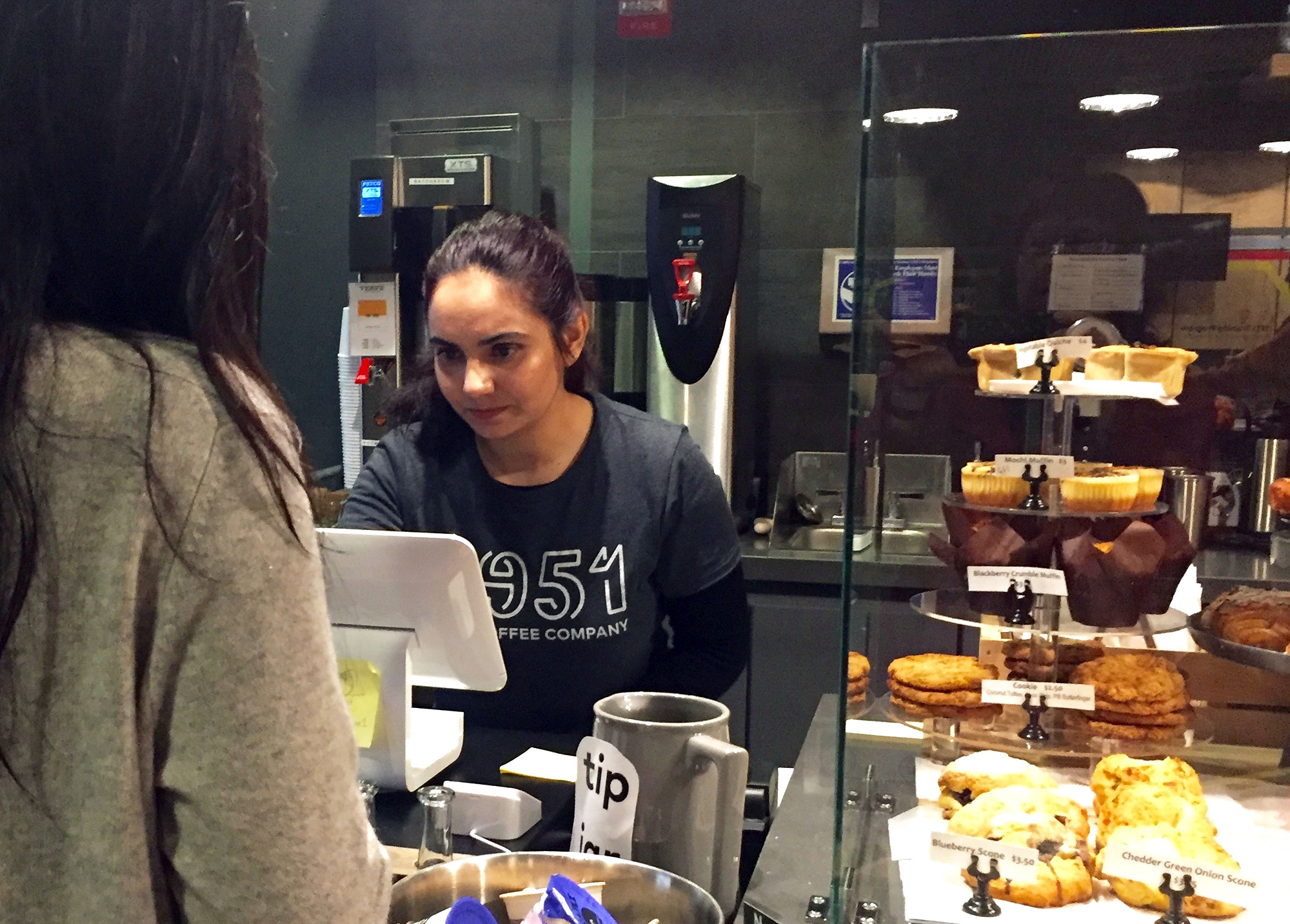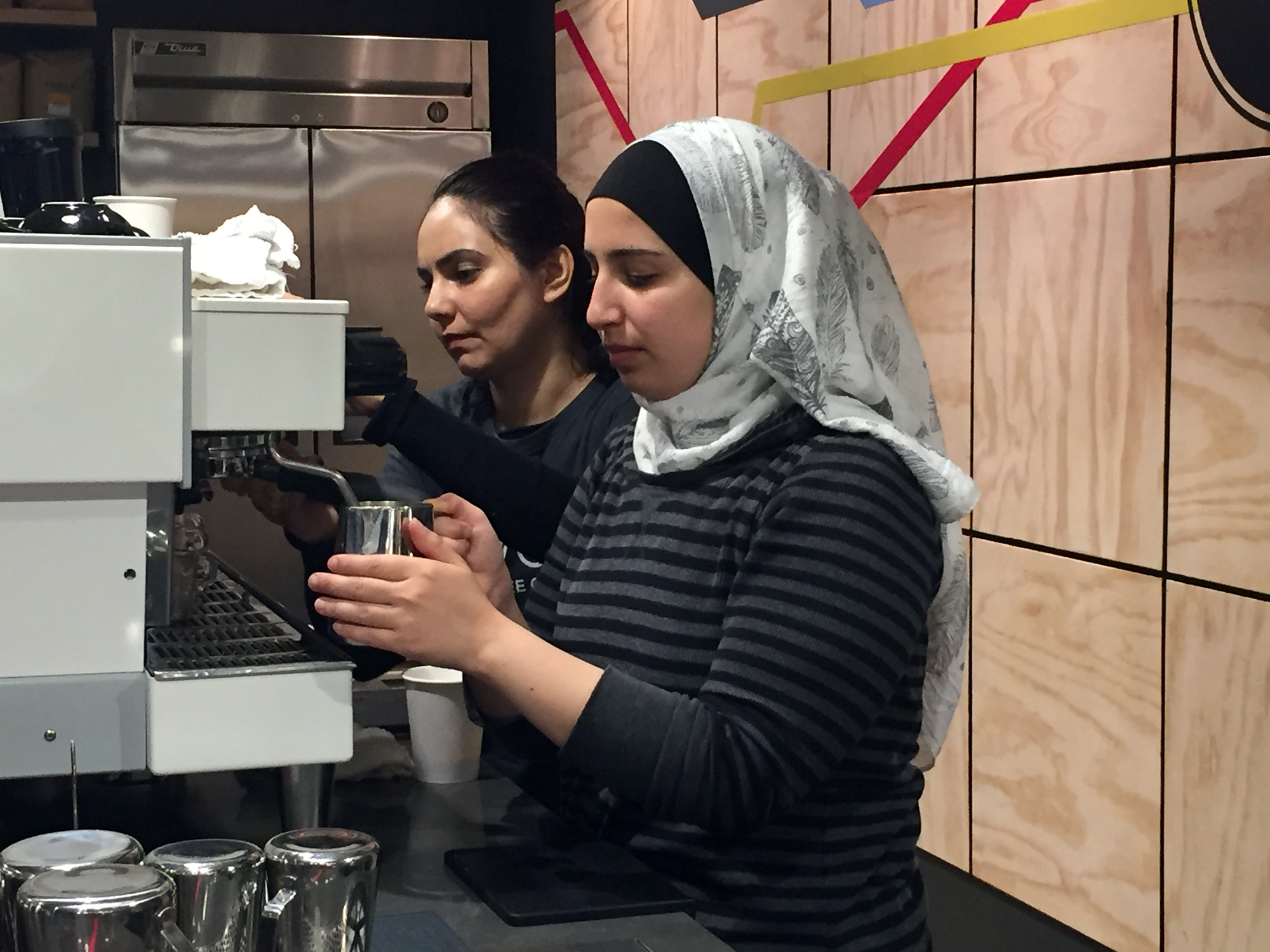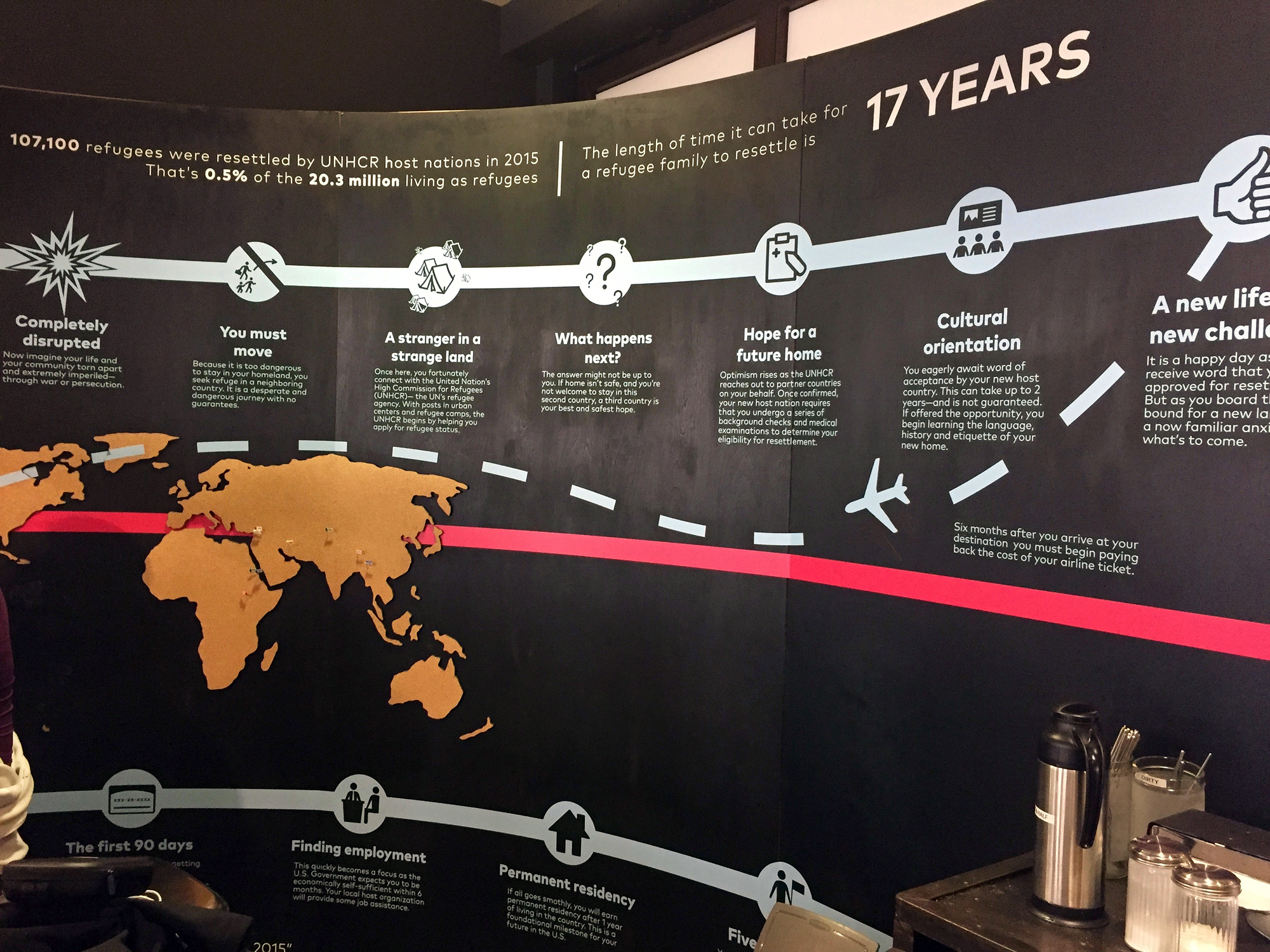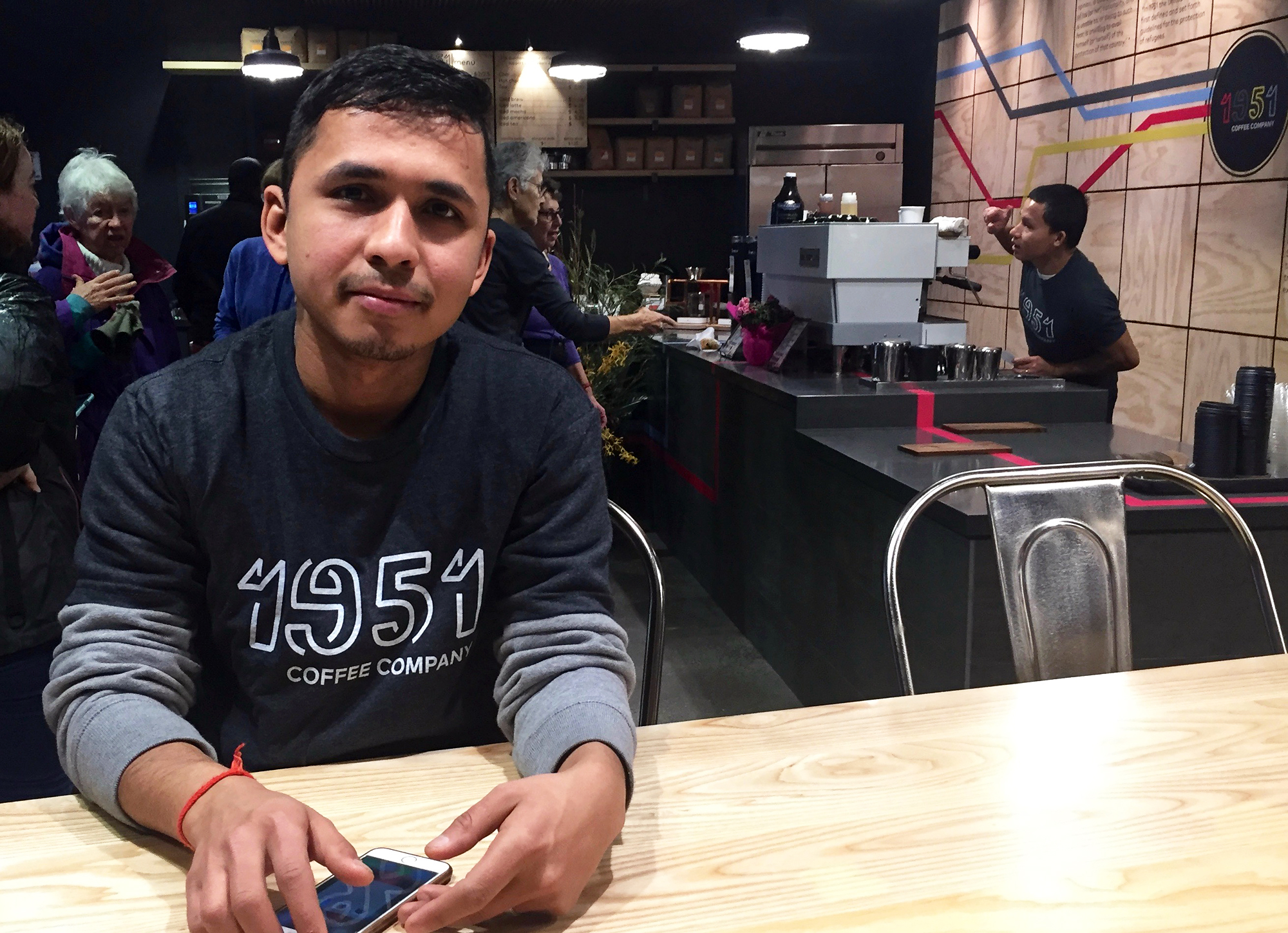When baristas hand over your low-fat latte, you probably don’t consider the paths that brought them to stand across the counter from you. But at 1951 Coffee Company, the Berkeley café that opened in January and is staffed entirely by refugees, the baristas’ life journeys are actually the point.
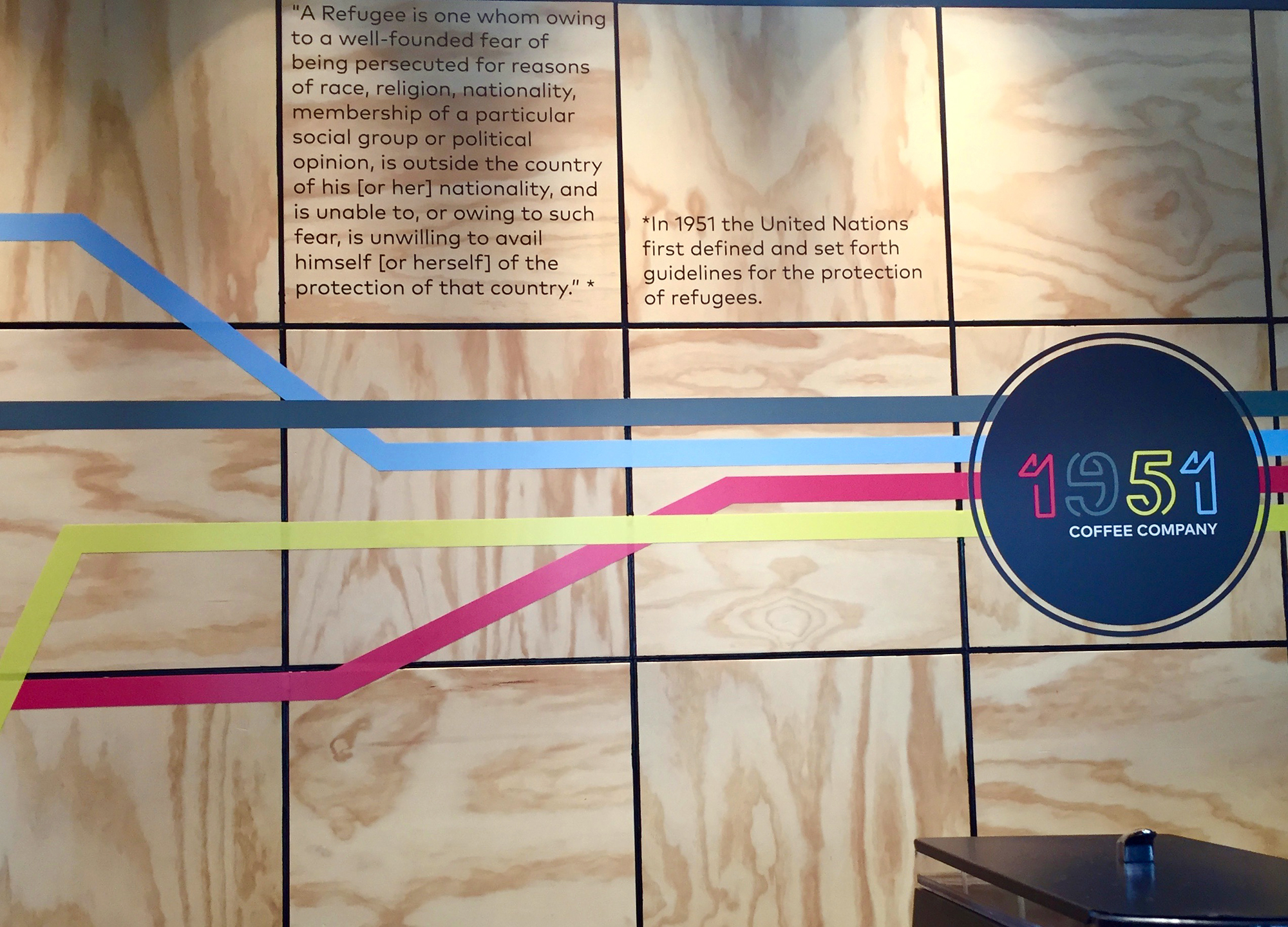
A tall gentleman with an intense gaze and a quiet voice, David [not his real name] takes orders for coffee, tea and muffins from the line of morning customers. David left his home in Uganda when he feared persecution under his country’s repressive policies. The former lawyer escaped to Nairobi, Kenya, where he waited in a refugee camp for two years until the United Nations High Commission for Refugees (UNHCR) found a spot to resettle him in the U.S. But first, he had to successfully complete the vetting process, a subject he wants Americans to understand. “It breaks my heart,” he says, “that people think it is so easy to come into this country. It is very hard; it is definitely an ‘extreme vetting process,’ which can take many years and requires interviews by agents from the FBI, CIA and the Department of Justice.”
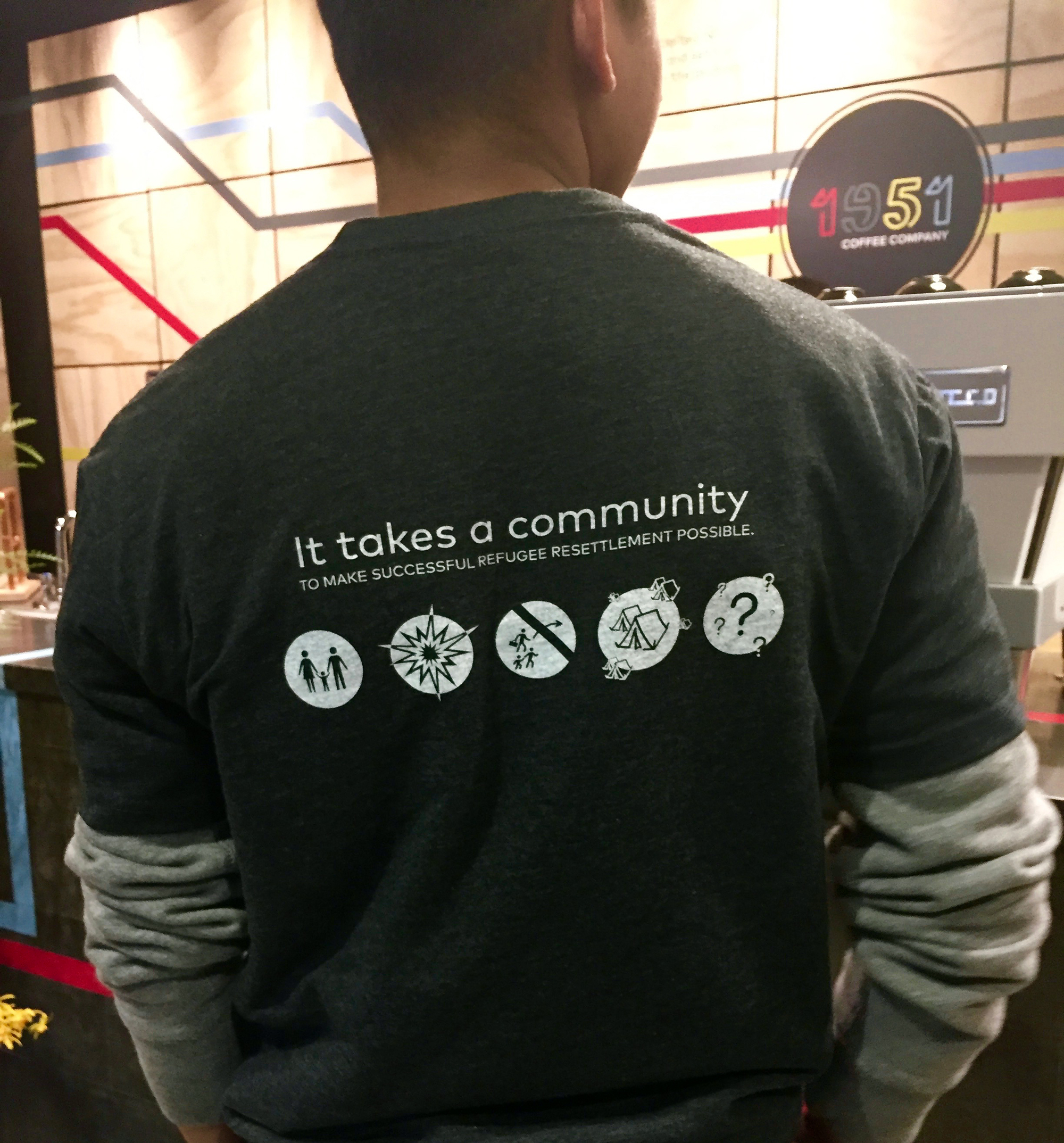
By the time he was hired at 1951 Coffee, David had almost given up hope of landing the job he so badly needed. He had already used up some of his limited funds to pay for clothes and transportation to 16 entry-level job interviews at hotels, nursing homes, and businesses. All turned him down, which left him deeply discouraged. He assumed that the combination of his skin color and accent led him to be judged and feared rather than given a chance. He now works at the café five days a week and is actively looking for a second job for the night shift to make ends meet. “As a refugee and a person of color in the Bay Area,” David adds, “I tremble all the time, worrying about my safety everyday. “But,” he adds, “I love this country and look forward to serving it in some way to thank you for giving me this opportunity.”
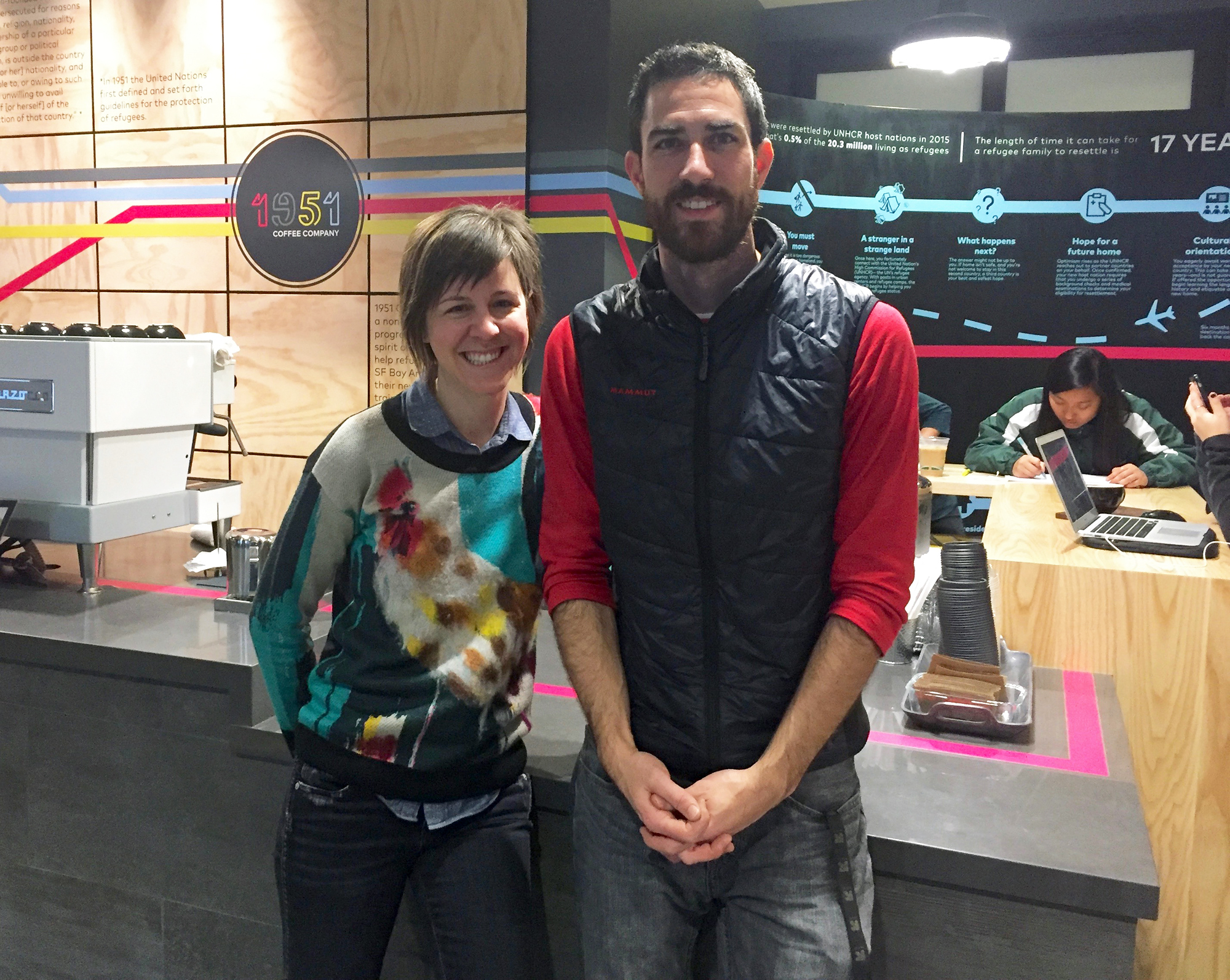
Before founding 1951 Coffee Company with Rachel Taber, Doug Hewitt’s job as an employment specialist at the International Rescue Committee (IRC), included preparing refugees for job interviews. He repeatedly witnessed a disheartening pattern: on the way to the interview, the refugees would chat with him personably. “But when prospective employers started asking them questions, they would get nervous,” explains Hewitt. “Their English would become even more ‘broken.’” They also might lose points for the way they answered typical American job interview questions, such as “Where do you see yourself in five years?” While this sounds like a simple query, an honest reply is not necessarily what the employer is looking for. Digital barriers add even more challenges today, as most applications must be completed online. When it asks for previous job experience, the location can only be selected from a list of the 50 states. There is no field to enter international job experience and without the conventional list of references, most prospective employers just don’t want to take the risk of hiring a refugee.
Hewitt would discuss these concerns with Taber, a co-worker at IRC, over a cup of coffee. Their shared love for the caffeinated beverage led to charts listing their ratings of nearby coffee spots and a jointly owned espresso machine for their office. “Okay, you can call it an obsession,” says Taber, smiling. They began to envision a place where refugees could be trained and supported while gaining the experience that could further their work lives. Hewitt, who had experience working as a coffee roaster, imagined many opportunities this field could offer refugees. They agreed that refugees + café seemed like a winning combination.
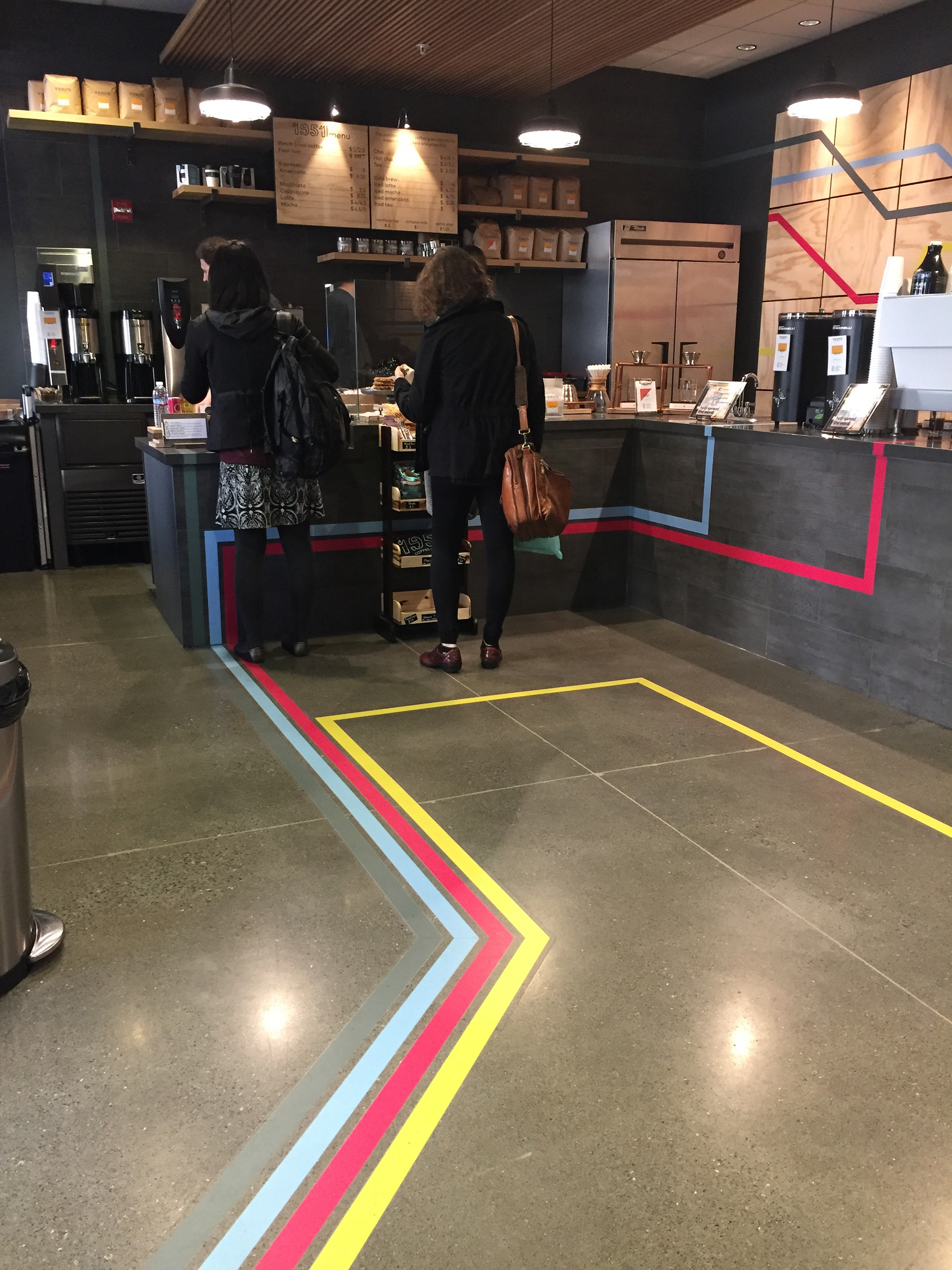
Taber, whose background is in fundraising, saw the Bay Area as the perfect place for this kind of social entrepreneurism, with its longtime support for immigrants and refugees coupled with an appreciation of high-end coffee culture. Though they faced numerous hurdles, many organizations and individuals (including the First Presbyterian Church of Berkeley, who owned the space where their restaurant is housed and the Montaag design firm) appeared --almost miraculously-- to offer support.
